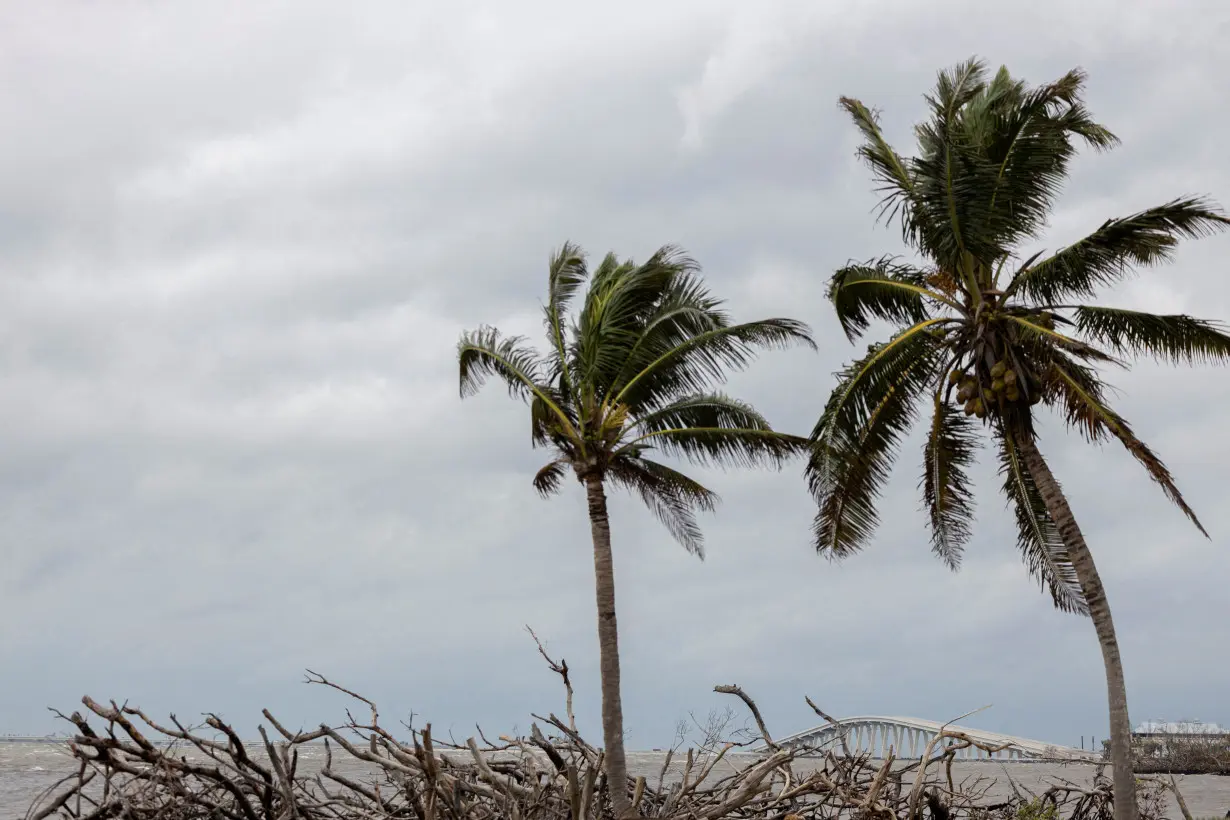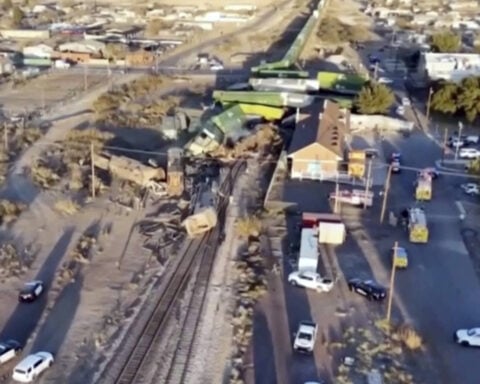LONDON (Reuters) - Catastrophe bonds issued by the U.S. National Flood Insurance Program (NFIP) fell sharply on Friday, according to a weekly broker's note, reflecting expectations that Hurricane Milton may trigger payouts for clean-up after the storm.

Catastrophe bonds are a form of insurance-linked security (ILS), which offer a way for institutional investors to access the insurance market.
Catastrophe bonds typically offer investors high returns, but issuers keep their principal if a specified event occurs, such as a hurricane or flood in a particular region.
Hurricane Milton brought widespread flooding and touched off a spate of deadly tornadoes on Florida's east coast this week, killing at least 16 people and leaving millions without power.
Seven NFIP-issued catastrophe bonds totalling $1.3 billion fell between 13% and 59% on Friday compared with a week ago, according to the note from broker Aon seen by Reuters. Aon and NFIP did not immediately respond to request for comment.
"We are monitoring the NFIP bonds that cover hurricane-induced flooding, however it is too early to tell the exact impact," specialist investor Twelve Capital said in a note.
The NFIP provides insurance to help reduce the social and economic impact of floods. Its catastrophe bonds provide protection against flood risk from named storms, according to data from specialist website Artemis.
Several other catastrophe bonds issued by insurers also fell sharply, according to the Aon note.
It could take weeks or months to determine whether the catastrophe bonds are triggered by the hurricane, during which time investors will be unable to redeem their bonds, industry sources say.
The hurricane would likely lead to "private trapped ILS capital", UBS analysts said in a note.
(Reporting by Carolyn Cohn; editing by Diane Craft)

 How to save a fentanyl victim: Key facts about naloxone
How to save a fentanyl victim: Key facts about naloxone
 Eight convicted in France over murder of teacher who showed Prophet caricature
Eight convicted in France over murder of teacher who showed Prophet caricature
 Death toll from German Christmas market car-ramming rises to four, Bild reports
Death toll from German Christmas market car-ramming rises to four, Bild reports
 France's Mayotte struggles to recover as cyclone overwhelms hospitals
France's Mayotte struggles to recover as cyclone overwhelms hospitals
 Russia's UK embassy denounces G7 loans to Ukraine as 'fraudulent scheme'
Russia's UK embassy denounces G7 loans to Ukraine as 'fraudulent scheme'
 Pope calls Gaza airstrikes 'cruelty' after Israeli minister's criticism
Pope calls Gaza airstrikes 'cruelty' after Israeli minister's criticism
 Retailer Party City files for bankruptcy, will wind down 700 stores
Retailer Party City files for bankruptcy, will wind down 700 stores
 Soccer's top players have had enough, as FIFA's new super-sized tournament sparks a revolt
Soccer's top players have had enough, as FIFA's new super-sized tournament sparks a revolt
 Lindsey Vonn finishes 14th in a super-G to mark her return to World Cup skiing at age 40
Lindsey Vonn finishes 14th in a super-G to mark her return to World Cup skiing at age 40
 Santa and Mrs. Claus use military transports to bring Christmas to an Alaska Native village
Santa and Mrs. Claus use military transports to bring Christmas to an Alaska Native village







